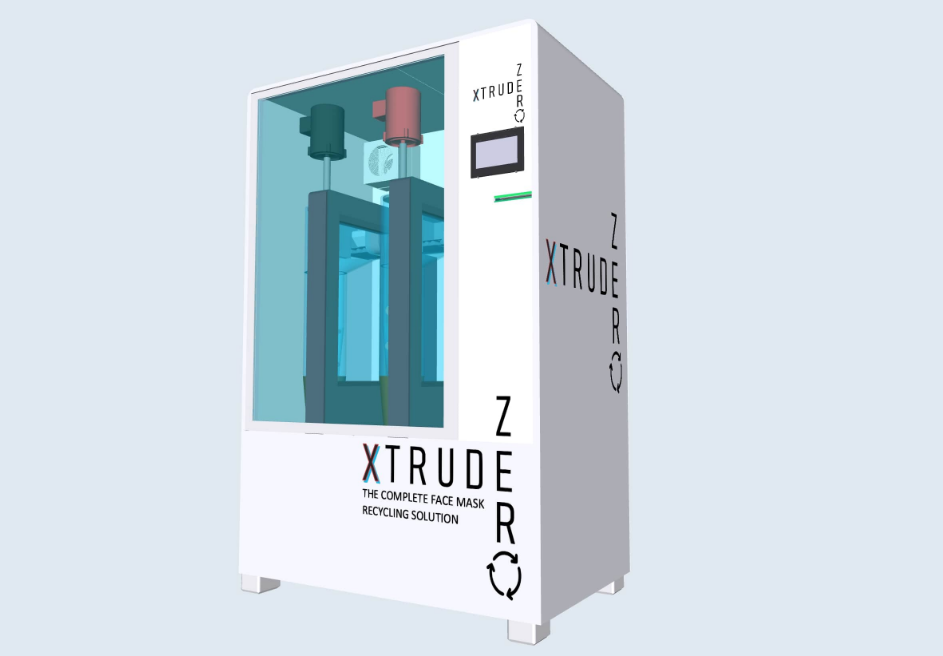Polish researchers have won a prestigious design award after devising a type of vending machine to disinfect and recycle used three-ply surgical faces.
Mike Ryan and Aleksander Trakul from Warsaw University Of Technology say that while other companies have identified polymer materials used in masks as being easily recyclable, their Xtrude Zero maximises the efficiency of the process. As a result, they are representing Poland in the 2021 James Dyson awards that celebrate and encourage the next generation of design engineers. The international contest against other national winners will be judged in October.
The idea came when the pair were making 3D printing face shields for medical staff during the Covid pandemic. ‘We came across a serious problem: plastic waste. Even though our operation was only mid-size, we noticed how much plastic waste was being generated during the production process.’
It then occurred to them they could use the estimated 30 billion face masks that go to landfill every month as a feedstock and the Xtrude Zero project was born.
How the machine works
Masks are first inserted into the machine individually and onto a conveyor belt. A series of rolling drums equipped with blades cut off the previously welded sides of the mask. Then, as the mask moves down the conveyor belt, three revolving drums strip off the masks’ layers one by one (each layer is a different plastic). The separated layers are then shredded and collected in a cylindrical container. The shredded fragments are then fed by a worm screw into a heating element. As a result of this process, a continuous strand of filament is formed. It is later cut into pellets which fall through a beam of UV light for disinfection.
What next?
‘Another key characteristic of our invention is the fact that because it is modular it can easily be scaled up to a large operation, therefore maximising the number of face masks recycled,’ say the inventors. Their idea is based on the technology for vending machines, making it easy to manufacture using existing infrastructure with minor adjustments. The Warsaw team say they now have to identify the costs of production and putting the machines in public area so that people can recycle their own masks.
Don't hesitate to contact us to share your input and ideas. Subscribe to the magazine or (free) newsletter.



